Ahead of game: Taming the Roaring HIPAA
In 2003, a new federal privacy regulation called HIPAA (Health Insurance Portability and Accountability Act) took effect. In an attempt to help psychotherapists make sense of the complex and often confusing regulations, I wrote my third book, The HIPAA Compliance Kit distributed by Norton Publishing. It was significantly revised several times over the years to keep up with the ongoing changes of the Security Rule, new telemental health technologies and practices and much more…
It says: Stop
And when it roars
We often drop
Our compassion
Only to comply with the rules…
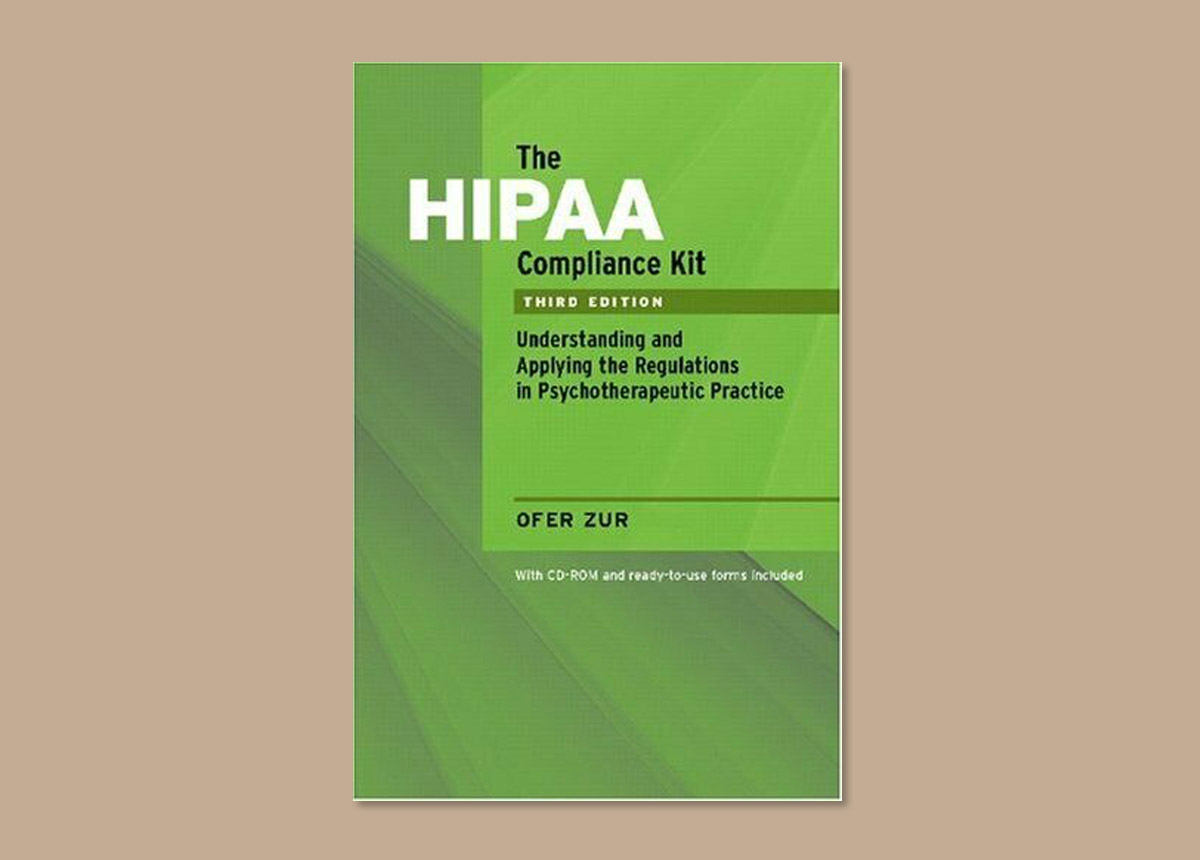
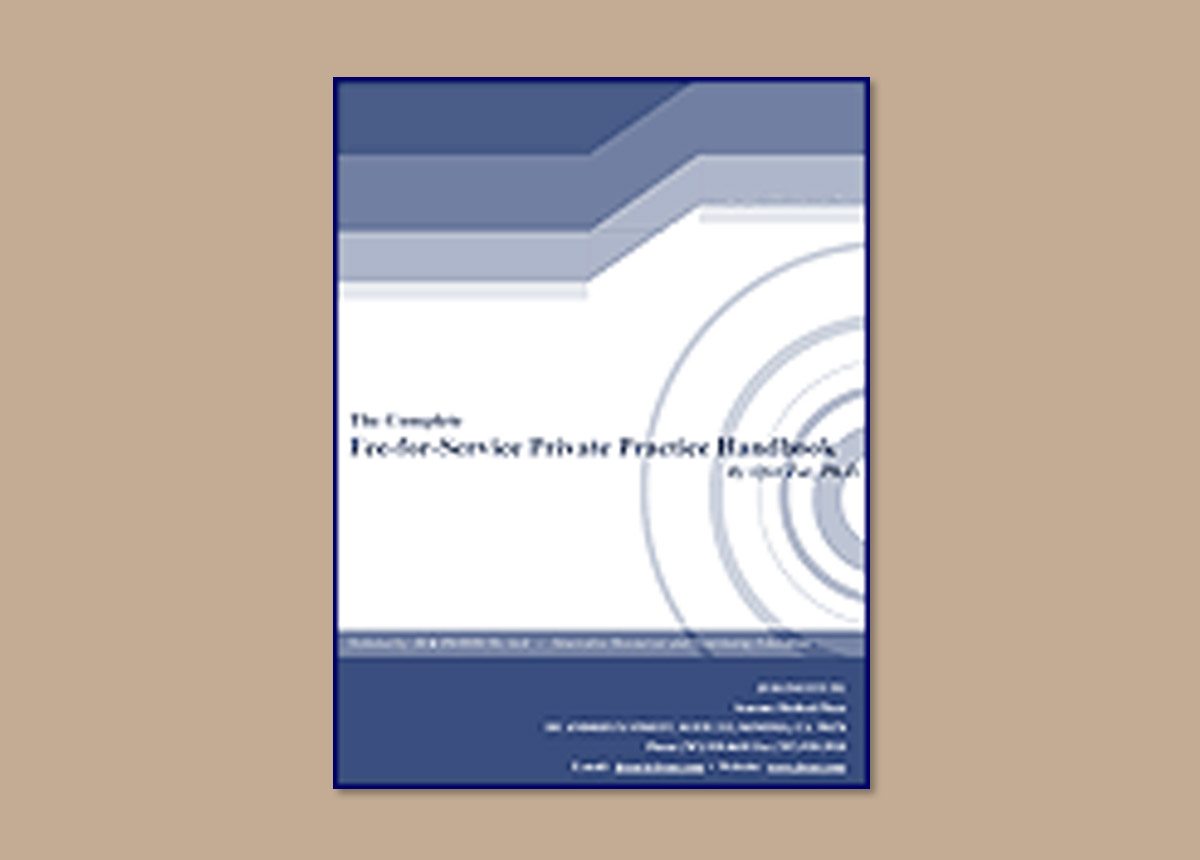
Teaching Therapists to Work Outside Managed Care
In the mid 1990’s I completed the first of many editions of The Complete Fee-for-Service Private Practice Handbook. This handbook encouraged and guided psychotherapists how practice creatively, ethically, and heartily without relying on the mostly financially-profit focused managed care and insurance companies and without being blindly wedded to the pharmacological companies controlled DSM or to risk-management ideologies. Following these principles have been a major focus of my contribution to the field of psychology and mental health services since the mid 1990’s.
Don’t let your wings be clipped
Don’t let yourself be whipped
Into shape
Your heart is there
For a reason…
On Digital Natives & Digital Immigrants
In the new millennium, it became increasingly evident that technology, in its many forms, was shaking and reshaping the world. The implications for professionals in psychology and allied professions were emerging and I had become increasingly aware of how the digital-technical divide between the older, pre-computer generation of “Digital Immigrants” and the younger generation of “Digital Natives” would impact us. My digital native daughter, Azzia Walker, and I co-authored an article and a PowerPoint presentation on the subject.
We were born into different worlds
Those in the front, and those in the rear:
You, who find digital reality clear,
and us… often consumed by fear

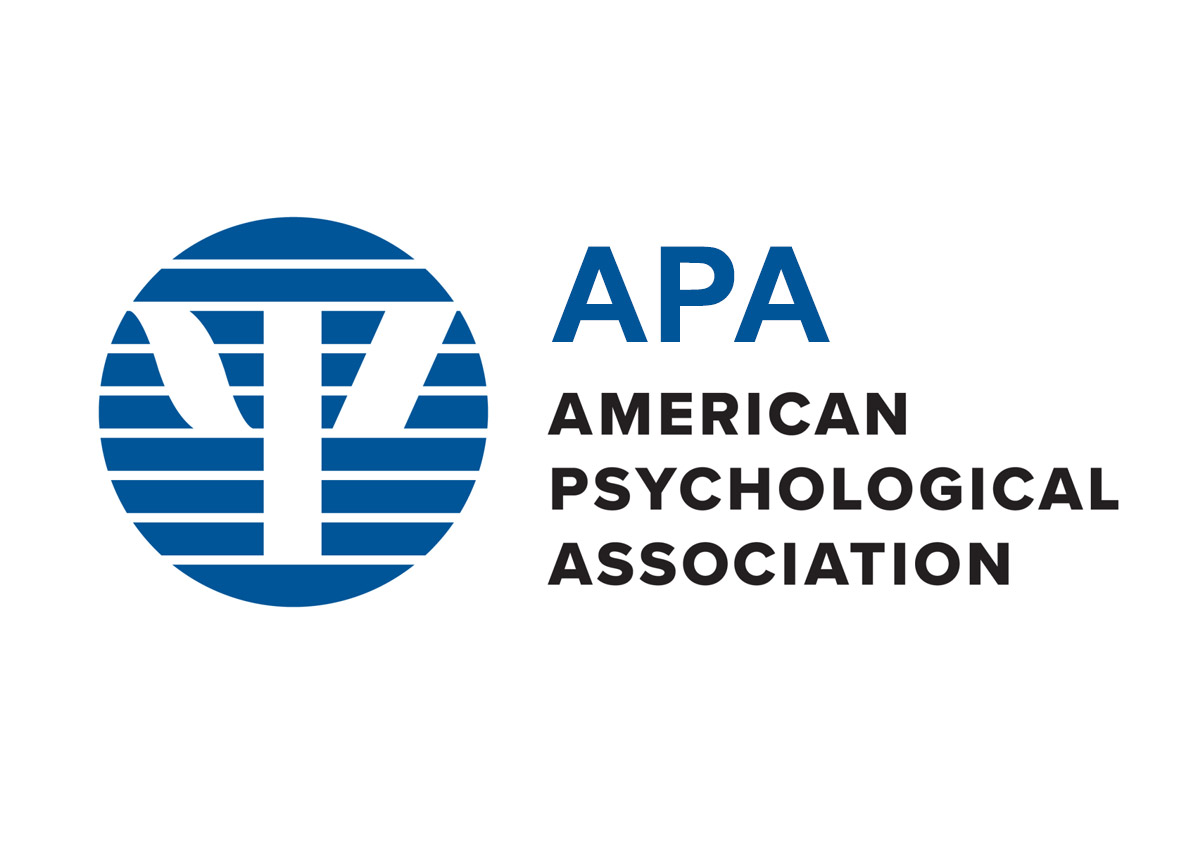
I WAS Heard – Was nominated APA Fellow
In 2009, I was nominated as an American Psychological Association (APA) Fellow (Div. 42) in recognition of my contribution to the field. This award marked the arrival of much-needed changes in professional ethics from rigid and fear-based to more humane and care-based. Besides my private psychotherapy practice and teaching on ethics and other topics, I have been consulting with therapists and have been retained as forensic expert (expert witness) where I could combine my knowledge and expertise on ethics and standard of care issues with my sense of fairness and justice.
The times change
When ethics are put front and center Enter
The field once governed by fear
To become a soothing blanket of humanity
Zur Institute Reaches 180 (!) Online Courses
By 2014, our Zur Institute online continuing education program had expanded to include 180 Online Continuing Education Courses. Every year, thousands of psychotherapists, counselors, MFTs, nurses, and lay people have been benefiting from our innovative and unique offerings.
Because we don’t stop learning
Till we die
Because it’s a high-
Time for growing
While we continually fly
Over fields of innovation


Studying the Impact of Technology on Culture & People
Modern Internet technologies and social media have drawn me to explore the boundaries involved in “digital ethics,” which include issues of online searches, e-mail in therapy, telemental health, and clients as Facebook friends.
Where do I end
And you begin
When we surf the same digital wave
When we bend
With the wind?
Teaching in Singapore on the Impact of Technology
Returning to teach in Singapore in 2010 gave me a chance to further explore this unique, tiny country, which focuses on a healthy balance between community and individual needs and rights. They also had just completed a 55 story man-made wonder called Marina Sands SkyPark.
The wonders of including
‘Me’ and ‘Us’
Stretches 55 stories into the sky
Revealing why
We have to dance in balance

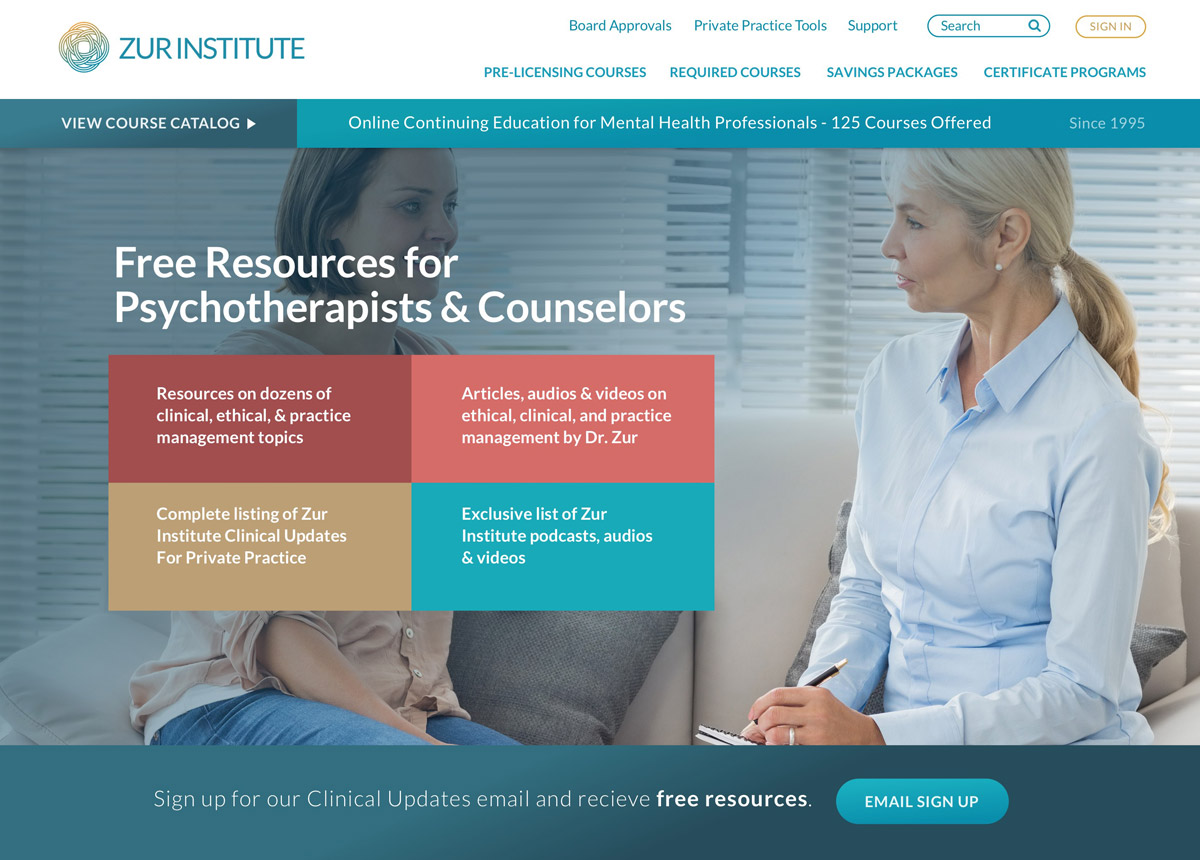
Zur Institute Continues to Grow w/ Our Fabulous Team
In 2015, the Zur Institute celebrated 20 years of our website which we started in 1995. We truly were pioneers of the Internet. With the unequivocal support, competence, and dedication of my webmaster, Deborah Porter, and Operational Manager, Pamela Adler, the site has grown to 180 continuing education online courses. In addition to directing the Zur Institute, I have been writing books and articles, as well as teaching on variety of topics, such as boundaries, multiple relationships, TeleMental Health and much more. All of this is in addition to providing psychotherapy and serving as expert witness and forensic consultant.
I have come to rely on you
As we each play a role
Each giving of our essence
To the whole
Celebrating Quarter Century of Providing Psychotherapy
I have been practicing psychotherapy since 1988, for over a quarter of a century. I use traditional clinical orientations such as CBT, psychodynamic, humanistic, existential and other similarly well established clinical approaches. I have been privileged to work with, help and learn from individuals, couples and families who have been traumatized or struggled with existential or relational concerns, as well as those with a wide variety of diagnoses or difficulties in living, such as schizophrenic, borderline and suicidal patients. I have explored with my clients various ways to live safely and meaningfully, and how to love and connect well.
A mosaic of soulful connections
Has fed me all these years
Challenges, agony, joyful tears
An ever expanding picture
Of the human condition, here…
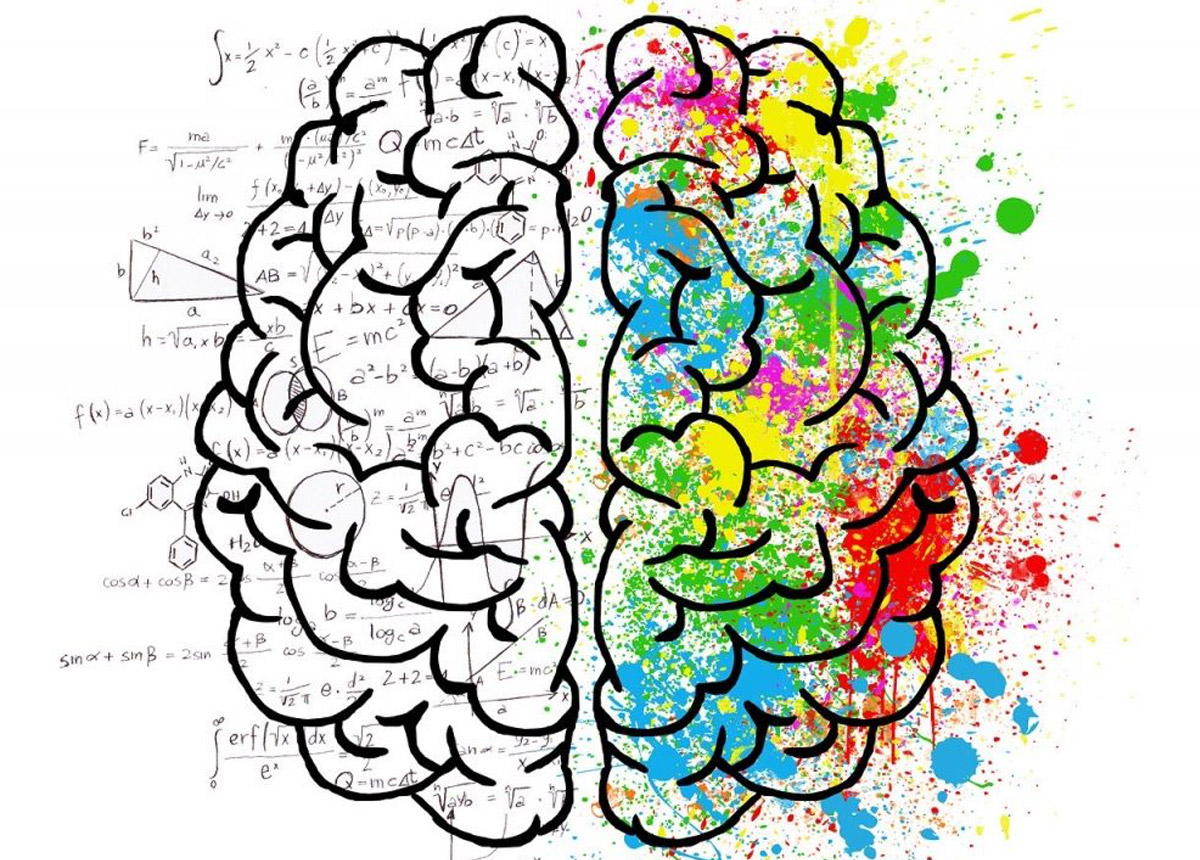
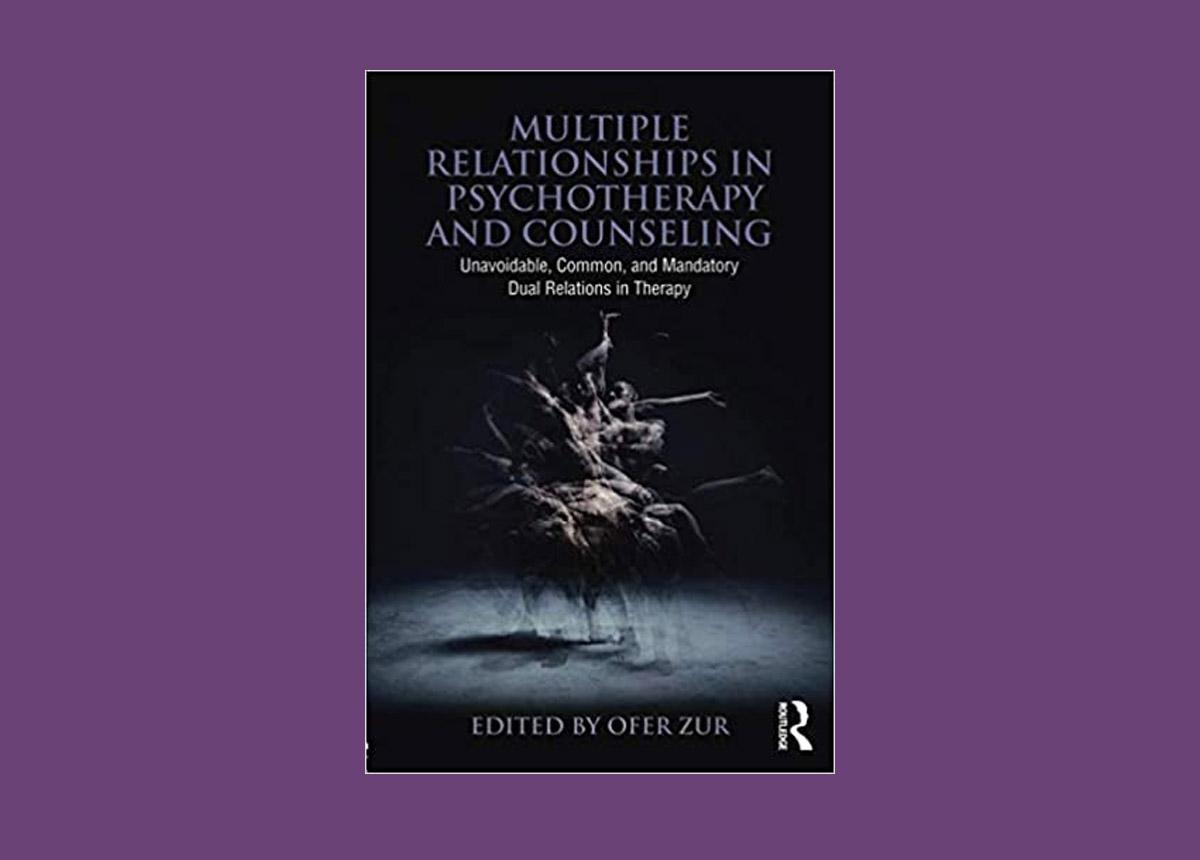
Polishing the Monument – My 4th Book on Duel Relationships
In 2015-2016, I edited and contributed to another book entitled Multiple Relationships in Psychotherapy and Counseling: Unavoidable, Common and Mandatory Dual Relations in Therapy, published by Routledge (2017). A colleague has labeled the book as “Polishing the Monument”, indicating that it finally puts to rest the erroneous idea that all dual relationships are unethical. It demonstrates that not only are some multiple relationships mandated, unavoidable, and common, but in fact some can be healthy and beneficial.
Like a diamond
Forming in the belly of the earth
This monument was polished
By love of life
Is it Ever Ethical for a Psychotherapist to be Naked with a Client: On Unavoidable Multiple Relationships
Moving to the small town of Sonoma, CA in the 1990’s was an eye-opening experience in regard to dual or multiple in a small community. Soon after I opened my private psychotherapy practice, I got a call from a couple who sought couple therapy. When I asked them how they got my name, the husband told me that he played basketball with the local old-men league and he liked the “ferocious” way I played. The wife added that she was on a field trip with our 1st grade daughters and witnessed me impressively helping a group of 1st grade girls negotiate a heated disagreement. As they shared their familiarity with me, I readily recalled my graduate school, ethics and risk management instructors warning us repeatedly that, in the words of K. P., one of the most renowned ethicist psychologist at the time “. . non-sexual dual relationships, while not unethical and harmful per se, foster sexual dual relationships.” When I inquired with top ethicists and risk management experts whether it is ethical or advised to see the couple in therapy, they unanimously warned me that dual relationships are unethical and likely to lead to sex. I wondered if they were concerned that I would have sex with the husband, the wife, or perhaps, with both at the same time 😋.
Early on in my residence in the town of Sonoma, I stepped out of the shower stall in the only gym in town, realizing that I was standing naked next to one of my clients. I had heard similar experiences from therapists who served on military bases, aircraft carriers or retreat centered,
These experiences and many similar others, led me to study the faulty beliefs about dual relationships, to publish articles, authors books, teach hundreds of workshops, consult with hundreds of therapists, testify in licensing board hearings and in civil lawsuits on the myth that all dual relationships are unethical and to expose the fact that dual or multiple relationships are unavoidable in certain settings, such as military, prisons, small and isolated communities and, in some situations, positively contribute to the therapeutic process.
Fears lead to fears
A path often trodden
By those afraid
Of being naked with the truth


Teaching Gig on A Cruise Ship to Alaska w/ the Family
In 2017, I embarked on my third teaching cruise, this time with my wife and two sons. Just as on my previous cruise to Alaska, my classes were occasionally interrupted when the students sitting by the window yelled, “Whales!”. Of course, the entire class, including myself, rushed to the window to see the spectacle of magnificent, broaching whales flailing the water with their great flukes right next to our ship! Our plan to experience dog-sledding did not materialize due to poor weather, but we were amply compensated when we took an unforgettable flight in a single-engine plane over the awe-inspiring Alaskan glaciers.
A family of whales
Cruising along my own
Parting the waters with tales
Of adventure
5 Forms of Guilt
The following are my thoughts on the different types of guilt and some of the ways in which I have experienced guilt. These are less obvious forms of guilt and go beyond lack of guilt (psychopathy) and excessive guilt (depression, anxiety, suicide, etc). As would be expected, by the age of 71, I have experienced most forms of guilt.
1. Appropriate Guilt: This type of guilt is an appropriate response to, or regret for, what we have come to understand, acknowledge or admit that we have done something wrong, unjust or immoral, or feel remorse for what we have not done. In my own life, I regret some of the ways I endangered others with the way I rode my motorcycle or shot the light bulb in the bunker, what I did or did not do in war, or was insensitive to friends’ needs.
2. Catholic Guilt – Religious Guilt: This kind of guilt is religion-induced that does not differentiate ones thoughts from their actions. Besides the Catholic church, other Christian denominations also believe people should confess to ‘sinful’ thoughts, yearnings or desires even when no actions were taken. Similarly, the ultra orthodox Jewish religion makes no distinction between ‘sinful thoughts’ and ‘sinful acts.’ I have experienced this kind of guilt as a young man when I felt guilty for internally reacting disproportionately with extreme anger.
3. Survival Guilt: This kind of guilt primarily manifests in people who have survived a life-threatening situation, such as battles during war or car accidents where others died or were severely injured. They often believe they could have done more to save the lives of others even if they could not. I have definitely felt this kind of guilt in relation to fellow soldiers who died or were heavily injured in military operations I was part of.
4. Neurotic – Toxic guilt – Persecutory guilt: This form of guilt is derived from a sense of not being a good–enough person, feeling like a failure who deserves to be punished. Persecutory guilt is a form of self-inflicted punishment
5. Existential guilt: This type of guilt can seem free-floating or unrelated to any particular situation. It is about one’s sense of accomplishment or success in addition to an awareness of the inequalities and injustices that exist in the world, such as a family member or community of people who are less capable or less fortunate than you are, or the fact that there may be people starving in Africa, or that the whales are dying off due to over hunting, pollution and other factors. When a person asks themselves “Am I doing enough to help others or help the world?” I have definitely experienced this kind of guilt combined with deep concerns for the underprivileged people worldwide, victims of unjust war, and disappearing species around the world.
The Coronavirus Pandemic exemplifies a variety of feelings of guilt that are the result of the fact that billions of people are unemployed, locked at home, or struggling with food needs, yet ‘you’ still have a job or can provide for your family. People may feel guilty because their children can’t see friends and grandparents or participate in normal activities. Perhaps someone they care for has been ill with COVID-19 or they feel guilty because a loved one has died all alone (‘coronavirus way’), and they couldn’t be there to say goodbye.
An emotion we perfected as human beings
Guilt
Is built
On so many lies
We tell ourselves


Not All Affairs Are Created Equal
Infidelity, unlike what most people assume, is neither rare, an exclusively man’s doing, nor the likely end of the marriage. Almost a third of all marriages may need to confront and deal with the aftermath of extramarital affairs. Women, men, gay, straight, young and old, all seem to be somehow engaged in affairs. Online affairs have become extremely prevalent. Marriages can get stronger when couples deal constructively with the affair. See: Infidelity & Affairs: Myths, Facts & Ways to Respond
Types of Affairs:
| 1. Conflict Avoidance | 8. Unsatisfactory Marriage |
| 2. Intimacy Avoidance | 9. Exit Affairs – Jumping off point |
| 3. Individual Existential/Developmental crisis | 10. Long Term Parallel Lives |
| 4. Sexual Addiction – Sexual Obsession | 11. Online (Most prevalent) |
| 5. Accidental – Brief – One Time Affairs | 12. Cyber Affair w/ a Sex-Robot |
| 6. Philandering | 13. Consensual |
| 7. Retribution |
Myths and Facts:
Myth: An affair inevitably destroys the marriage.
Fact: Many marriages survive affairs and many emerge stronger from the infidelity crisis.
Myth: Infidelity is rare in the animal kingdom.
Fact: Only 3% of the world’s 4,000 species of mammals are pre-programmed for monogamy.
Myth: Infidelity is rare and abnormal in our, and most other, societies.
Fact: Men’s infidelity has been recorded in most societies.
Myth: Society, as a whole, supports monogamy and fidelity.
Fact: Society gives lip service to monogamy/fidelity, but actually supports affairs. (i.e. Ashley Madison)
Myth: Men initiate almost all affairs.
Fact: Infidelity has become an equal opportunity issue in the West.
Myth: An affair always means there are serious problems in the marriage.
Fact: Research has shown that some of those who engage in affairs reported high marital satisfaction.
Myth: Infidelity is a sign that sex is missing at home.
Fact: Some unfaithful spouses have reported increased marital sex during the period of their affair.
Myth: Infidelity always has to do with a bad marriage or a withholding partner.
Fact: There are many reasons that people may choose to have an affair.
Myth: Full disclosure of all the details of the affair to the betrayed spouse is prerequisite to healing.
Fact: Giving the uninvolved partner all the X-rated details of the affair can be traumatizing.
Myth: Extramarital affairs are never consensual.
Fact: Open marriages used to be popular in the 1970s and are still around.
An affair to remember
An affair to forget
Between all the taboos
We met
For a moment of truth
Zur Institute: A Dream Fully Realized
Dr. Zur is well known for having the vision to introduce ideas well head of their time: When almost no one spoke of HIPPA or Clinical Form he was already touring the country giving presentations about it. He was one of the pioneer leader the Private Practice Outside Managed Care movement in the 90’s. When almost no one contemplated the complexities of Dual Relationships or the Risk of Risk Management, he was already writing and publishing books and articles about it. When almost no one cared to invest in Telemental Health education he was already envisioning and focusing on creating courses and resources about it.
In 1997 Dr. Zur developed a vision that was also ahead of its time, the Zur Institute: The creation of a successful model of online education that would provide CE credits for Mental Health practitioners. When asked, “Who do you think you are? Do you think you are going to compete with UC Berkeley?” Dr. Zur, simply, responded, “What a great idea.” Indeed, Zur Institute, Inc. has since served dozens of thousands of individuals, becoming one of the most successful and biggest online CE programs in the world. After 25 years of passionately devoting himself to developing and upholding the highest educational standards for Zur Institute, in April 2020 Dr. Zur left his role as its Director/owner. He then devoted his energy and time to the non-profit he created: Project Insights.
There is never a crowd
On the leading edge
On the verge
Of new discoveries
Is where I like to run
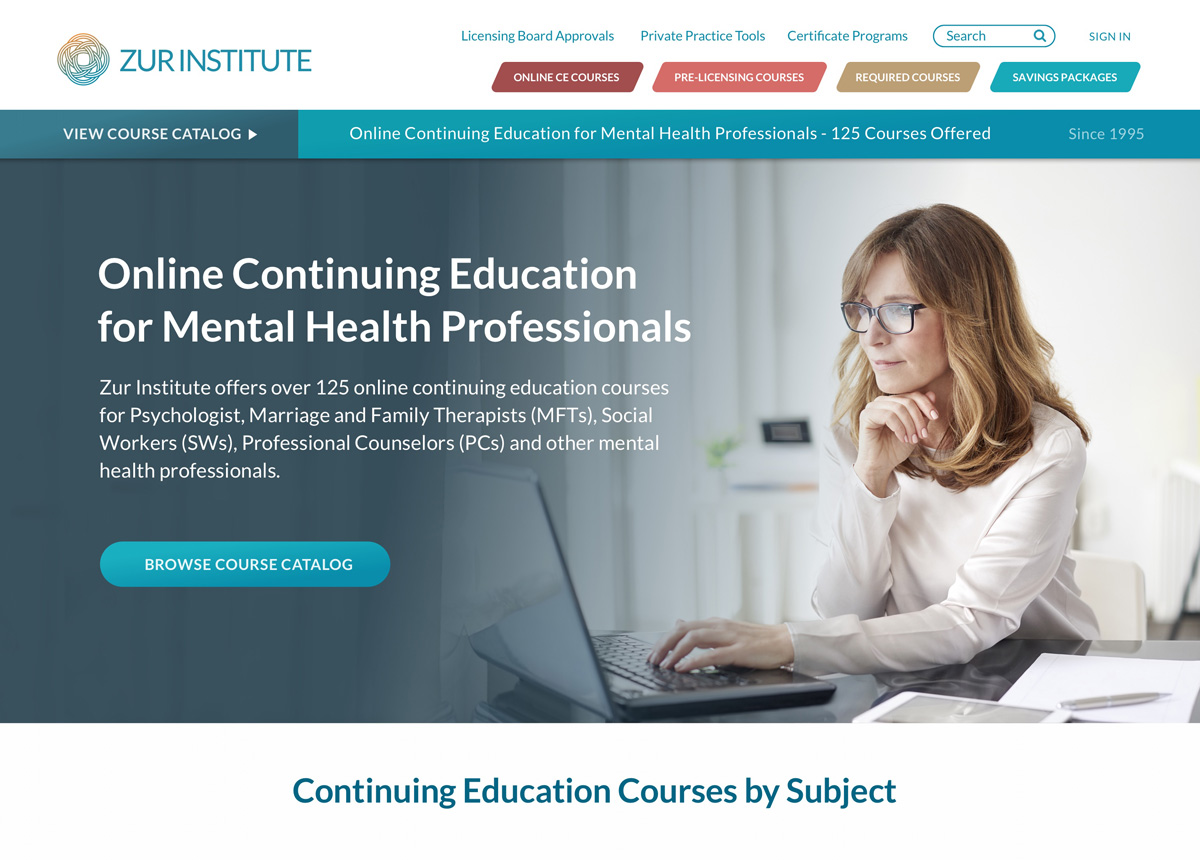

On Critical Thinking: Exploring Politically and Professionally Incorrect Myths & Faulty Beliefs
Whether in psychology, oceanography, chemistry, limnology, or on ‘hot’ topics such as gender, race, victims or war, I have devoted a big part of my life to exploring the ‘given’, the unexamined truths, and often, the politically incorrect beliefs. The Following are some samples of the faulty beliefs I have challenged (and links to my writings on each topic):
- “Don’t Blame the victim” – Victims are 100% innocent
- Marital affairs are rare & signify that the marriage is ‘in trouble’
- The Myth of the “Warrior and the Beautiful Soul“: Unlike men, who are inherently warlike, women are innately peaceful
- Humans are inherently peaceful – Wars have no appeal
- Death is a failure and should be avoided at all cost
-
Oceanography is useless for fish farming and limnology is clear about the importance of mosquito larvae for fish ponds
- Blackouts are no good and to be avoided at all costs
- When in doubt, follow your instinct
- Myths & Faulty Beliefs in Psychotherapy & Counseling:
- Touch in psychotherapy is likely to lead to sex
- Therapists are always more powerful than their clients
- Once a client, always a client
- Dual or multiple relationships in psychotherapy are unethical
- You are one Borderline (BPD) away from losing your license
- The DSM (Diagnostic Statistical Manual) is scientifically based
- Risk management is at the heart of the standard of care
- Boundary crossings inevitably lead to boundary violations
The unexamined truths
Is a desert territory
Which I like to roam
With my heart
Therapists (& General Public) Beware: You Are One Borderline (BPD) away from losing your license
In my forensic/expert witness practice I have encountered the most fascinating, colorful and intriguing cases where BPD (Borderline Personality Disorder) clients have gotten their (otherwise solid, competent and ethical) therapists to behave in ways they regularly wouldn’t such as giving them money, regularly texting with them at 1 or 2 in the morning, doing drugs with them, moving in with them, wearing their clothes, even adopting them, and, of course, having sex with them.
This dynamic is often present in the BDP’s personal, intimate, familial and vocational life and can also occur with psychotherapists or counselors.
Without a doubt, it is a therapist’s responsibility to maintain clinically appropriate boundaries with all clients. However, that is not always easy when it comes to BPD clients, especially for therapists who are either new to the profession or not experienced with these clientele. Clients with BPD are extremely unstable and are so desperate for connection that their fierce need can draw a therapist in. At the same time, many BPD clients have learned not to trust those very attachments they demand and crave. Thus, therapists can find themselves caught in their BPD clients’ conflicting desires. Therapists and others the borderline is in contact with will often accommodate, give in, support, yield to no-end in order to avoid the “borderline” rage.
Borders
Hold the promise and the risk
Of what’s beyond them
Tempting and threatening
They allure the best of us


Professional Honors & Nominations
In 2021, I was highly honored for my expertise in psychotherapy ethics, when asked to submit an amicus brief (amicus curiae) to the Minnesota Supreme Court regarding psychotherapy and mental health standards. This is in addition to being nominated in 2008 as a Fellow of the American Psychological Association (APA) Div. 42 of Independent Practice, as well as the publication in 2007 of my book, Boundaries In Psychotherapy, one of the most comprehensive books on therapeutic boundaries published by, no other than, American Psychological Association, APA Books. I have authored and edited 5 books and hundreds of professional articles on a variety of psychological topics.
It is a true honor
to run in pursuit of truth
And a gift
To have my running recognized
Expert Witness & Ethics Consultant
Serving as an Expert Witness in administrative licensing board hearings and in civil lawsuit trials has been an exciting and invigorating experience for the last 30+ years, as I have been able to shed light on numerous misconceptions and errors in understanding the standard of care, the importance of context, and, of course, boundaries, such as dual relationships, physical (non-sexual) touch, gifts, home visits, sessions taken place outside the office, and bartering. The explosion of TeleMental Health in 2020 has also been the focus of many of my depositions. On a weekly basis, I provide phone or zoom consultations for therapists all over the US (and abroad) on standard of care, context and boundaries.
They asked:
‘How do you dare?’
when I broke convention
to practice care…

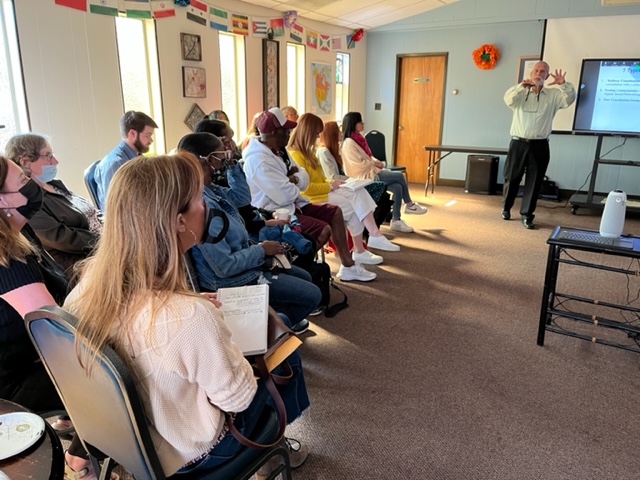
Teaching a Live, In-Person, Workshops Again – May/2022
After 2.5 years of corona virus hysteria and multiple remote teaching, primarily via zoom, the Lutheran Community Services Northwest, in Portland, OR invited me to teach live, in-person, seminar on TeleMental Health and Digital Ethics. It was an exciting hearty event where in-person exchanges, hugs, laughs, and even present exchange took place… again.
Back from the cold
Of isolation and global fear
Drawing near,
hugging
Being clear
About the profound merits of closeness
Therapeutic Ethics in the Movies
In 2022, I rekindled my passion for presenting ethical issues with the aid of clips from popular movies and TV series. It turned out to be very effective, popular, educational, and, yes, a truly fun way to discuss complex therapeutic ethical, standard of care and boundary considerations. I developed a continuously growing web site that presents 17 ethical aspects Psychotherapy & Psychotherapeutic Ethics in Popular Movies & TV series where people (you) can (still) contribute their movies ideas and suggestions.
At the same time, I have also developed keynote presentations and courses on Therapeutic Ethics in the Movies that I presented in person, online, in the US and . . . in Israel. They all include dozens of short movies’ and TV series’ vignettes offering looks at a variety of ethical complexities in psychotherapy and counseling.
Those characters on the screen
Love, recoil, lose, win,
Grapple with a whirlwind
Of emotions,
Just like us…

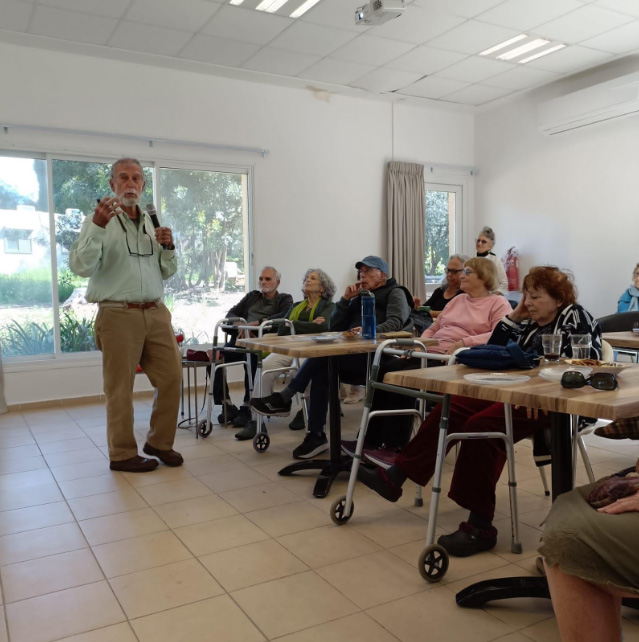
Between Religion and Ethics: Presenting in Israel 2023
An interesting and unusual audience combination of Israeli psychologists, some of whom also lead a traditionally religious Jewish life, presented me with a challenge I was happy to tackle on in my visit to Israel in 2023. My presentation Therapeutic Ethics in The Movies had to be reinvented in order to be sensitive to audience members who could be offended by nudity, language, and sexual references, to name but a few. I didn’t know what to expect from the English-speaking, largely traditional Jewish psychologist audience in Ra’ananah, Israel. The challenge doubled as I was not willing to dull my presentation in order to appease an audience. The result was the best of both worlds: my points were able to come across and be absorbed poignantly, while I did manage to evoke some strong reactions from the audience, which I always considered to be a bonus!
A second presentation during the 2023 visit was on Myths We Live By in my sister’s kibbutz Nachson. It was exciting and surprising presentation in… Hebrew on challenging topics such as victimization and abuse to an audience that experience both. It was interesting, respectful and intense presentation as the audience include holocaust survivors and victimized women.
The landscape, the people,
So familiar, yet so ‘other’
In the land of my mother, my father
Where I bring my views
From across the ocean
To meet on the even ground
Of the heart
I Was Deeply Touched by a Hearty Feedback
After my 2/11/24, 2 hrs, 2 CE, zoom presentation for the (American) Iranian Psychological Association on Ethical-Moral Junction in Psychotherapy and Mental Health Services I got the following hearty-moving feedback from an Iranian-American psychologist participant:
Dear Ofer,
Thank you so much for the great presentation. Your approach was a breath of fresh air as it was not the typical ethics workshop of “do this” and “don’t do that”! As I told my colleagues, your approach of considering junctions of ethical and moral considerations was thoughtful, real, and applicable to everyday clinical dilemmas that we all experience.
But aside from the workshop, I found myself really liking, in fact admiring, your philosophical stances and ways of thinking: values, critical thinking, analysis, openness to possibilities, living life bravely, honestly, and what seemed to me to be taking the juice out of life. It was a pleasure being with you.
If you are ever in my area, I would love to treat you to some delicious Persian food.
With warm regards,
H.
A beautiful note,
like a present
wrapped in kindness and warmth
had been sent,
reminded me of the importance
of considering ethical junctions
To receive such feedback had opened
a river of good nature,
a spring flowed within me,
a well of nurturing

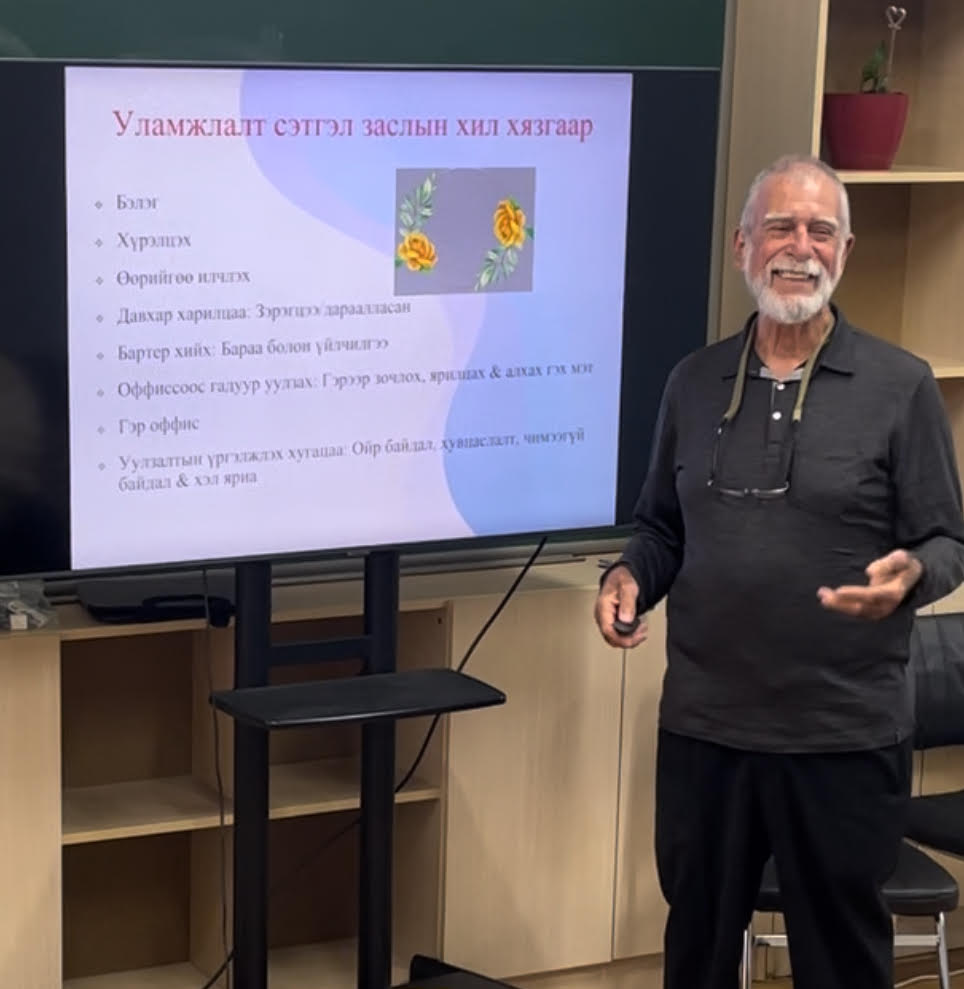
Teaching Psychological Ethics in Mongolia
I was super excited that I was invited to present to Mongolian psychologists, educators, social workers, and legal professionals on “Applied Psychological Ethics” in Ulaanbaatar, the capital of Mongolia on 5/11/24. The course announcement in Mongolian. I have learned a lot from them about their work.
Theme #2: Military Experience
Theme #3: My Family & My Health
Theme #4: Questioning Authority, Challenging Accepted Truths & Debunking Myths
Theme #5: Psychology of war – The Love of Hating
Theme #6: Adventures & World Wide Travel
Theme #7: On Good Rules & Bad Rules: Pushing the Limits & Freedom Seeking
Theme #8: My Moral Junctions
Theme #9: Looking at Death Straight in the Eyes
Theme #10: Professional Psychology, Zur Institute & Professional Achievements
Theme #11: On Men, Women, Gender Role and Gender Relationships
Theme #12: At 70’s: Next Mountains to Scale
Theme #13: Amazement! I am still here